Picture this: A muscle-bound kid from a little Austrian village arrives in America, the land where dreams supposedly come true. He doesn’t just knock on the door of opportunity—he kicks it down.

- Bodybuilding? He becomes the undisputed world champion of the sport, still hailed by many as the greatest of all time.
- Hollywood? Even with disadvantages like an unusual accent and name, he becomes one of the biggest action heroes ever, redefining the industry.
- Politics? He marries into the Kennedy family and then becomes Governor of California, a state with an economy bigger than most countries.
Arnold Schwarzenegger’s life is a story of breathtaking ambition, sheer will, and a larger-than-life confidence that some feel borders on arrogance.
But can we blame him? Almost everything the man has touched in his life has turned to gold. (Except perhaps, unfortunately, for his marriage.) As the comedian Bill Burr has said, “This dude has been in the zone for over four decades. Four decades—nothing but net. […] How many lifetimes would a regular person need [to accomplish all that Arnold has done]?”
In this book summary of Total Recall, Arnold’s official autobiography, you’ll see how Arnold’s success was clearly intentional. From a young age, his vision was to be a world-famous bodybuilder and Hollywood actor. First, Arnold mastered how to reshape his body, and then he seemed to bend life itself according to his will.
💪 1. No Shortcuts to Success: Arnold’s early lessons in discipline taught him that if you want success you’d better earn it
Schwarzenegger’s story began in 1947 in Thal, a little Austrian village, where he was born into a humble farmhouse that did not have running water. At the time, Austria was still recovering from World War II, its economy and national pride both devastated.
Discipline was at the core of Arnold Schwarzenegger’s early life, a lesson instilled by his strict father, a local police chief. Each morning, Arnold and his brother were required to finish a series of sit-ups at the break of dawn before they earned their breakfast.
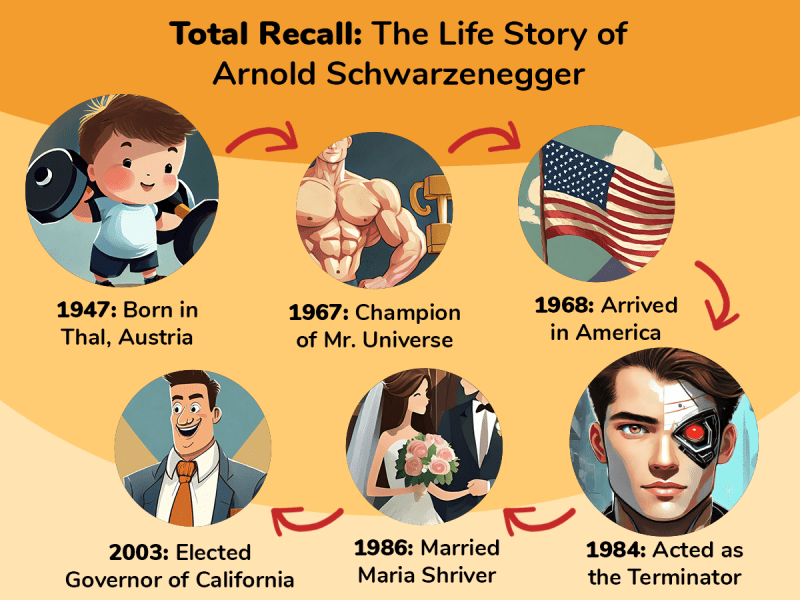
As a teenager, Arnold found his passion for bodybuilding in the corner of a local park beside a lake, where he and others would work out at an improvised gym, doing pushups in the dirt and pull-ups on tree branches.
Sometimes a real bodybuilder would stop by to join them, he was Mr. Austria at the time. In young Arnold’s eyes, this guy was the absolute embodiment of success. He had impressive muscles, a flashy car, and the women. And he worked extremely hard, with a full-time construction job and afterwards a daily 3-hour workout.
Another important mentor was Fredi Gerstl, the father of Arnold’s friend and a local politician. He taught Arnold the importance of not just training the body, but also the mind. He would often talk about the Ancient Greeks who valued both great philosophy and athletic excellence. From then on, Arnold tried to learn as much as he could, both from studying and from people around him, becoming a sponge for all kinds of knowledge.
This reminds me of one of my favourite quotes from Socrates: “No man has the right to be an amateur in the matter of physical training. It is a shame for a man to grow old without seeing the beauty and strength of which his body is capable.”
There are no shortcuts. That was the big lesson Arnold learned from Mr. Austria. If you want the muscles and the success, then you must earn them.
🏋️ 2. Focus on Reps, Reps, Reps: Through sheer repetition and consistency, you will get better and stronger
Arnold soon found himself going to a nearby gym. Well, it looked more like a concrete dungeon, but at least it had weights.
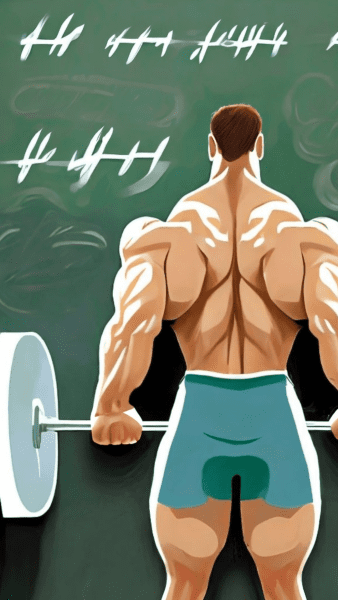
At the front of the gym was a public blackboard, where everyone would write down their daily workout goals, including how many repetitions (reps) of each exercise they would do. After finishing each exercise, Arnold would make a mark on the blackboard, crossing it off.
This ritual became an incredible source of motivation for Arnold, teaching him the power of writing down specific milestones and then achieving them. Arnold was doing more than lifting weights, he was cultivating the discipline and determination that would carry him to the heights of world-class success in multiple arenas.
For the rest of his life, Arnold believed he could master any skill through relentless consistency and repetition. His mantra became, “Everything is reps, reps, reps.”
Some specific examples:
- Being a new immigrant in the U.S. Arnold would write down very specific, measurable objectives for each important area of his life. For example, in one year his goals included getting 12 college credits, saving $5,000, and working out 5 hours/day.
- Preparing to be “The Terminator,” his most iconic role. Arnold would practice reloading and shooting each gun featured in the movie, over and over again, until he could do it blindfolded with the smoothness of a machine.
- Rehearsing a speech to the United Nations. Later in his political career, Arnold would practice important speeches in the same way, with ruthless repetition, until each word was burned into his memory.
This reminds me of the idea of goals versus systems, explained in the bestselling book Atomic Habits by James Clear. He said, “Forget about goals, focus on systems instead. Goals are about the results you want to achieve. Systems are about the processes that lead to those results.” In other words, we should avoid obsessing too much about our desired end goals, instead have commitment to the processes that lead to those goals. Just like Arnold focused on daily reps, reps, reps.
Another famous Hollywood actor that embodies self-discipline and superhuman confidence is Will Smith. As a boy, Will got a tough lesson in determination and perseverance from his father. One summer, he and his brother were given what seemed like an almost impossible task: to build a massive brick wall.
But brick by brick, the impossible became a reality, and the wall stood completed after months of hard work. The goal? His father wanted to teach him that no goal is too big to achieve.
The trick, Will discovered, is not to obsess over the entire wall but to concentrate on laying the next ONE brick as perfectly as you can. If we fixate on our grand dream or vision, we usually become intimidated and overwhelmed. The solution is focusing on the next ONE action you can do, to take a small step towards that vision. Then take another. And another.
Read more in our summary of Will by Will Smith and Mark Manson
In Arnold Schwarzenegger’s journey, there were no shortcuts, only ‘reps, reps, reps’—the relentless repetition that turned dreams into achievements. He learned the power of writing down specific milestones, a practice he applied in bodybuilding and every other success.
🔮 3. Clarify Your Future Vision: Arnold visualized his future stardom, inspired by role models like Reg Park
Imagine a young Arnold Schwarzenegger sitting in a dimly lit theatre in Austria, his eyes glued to the big screen where the bodybuilding champion Reg Park was starring as Hercules. It was this exact moment that crystallized his future.

Reg Park was a British man who went from bodybuilding champion to movie stardom and business success, with a gym chain in South Africa. As a confused teenager with a passion for bodybuilding and fascination with America, Arnold suddenly saw that man’s life as the perfect encapsulation of his various interests.
In Reg Park, Arnold discovered not just a role model but an exact blueprint for his life.
From that day forwards, Arnold knew that he was going to become a world-class bodybuilder, move to the world’s greatest country in his eyes (America), and then become a world-famous movie star.
His vision could be summed up as “be like Reg Park” and he was totally committed: “it was this or nothing.”
Refining a clear vision of his dream future sparked in Arnold a relentless work ethic, pushing him through daily 5-hour workouts and all the obstacles of being an immigrant, including learning English.
Like people today who create vision boards, Arnold Schwarzenegger covered his walls with pictures of bodybuilding champions for inspiration. When his mom saw this, she got worried because most other boys his age had pictures of attractive women instead. She talked to a doctor who told her there was “nothing wrong” with Arnold, he was just looking up to these men as role models. A fascinating look into that time and place.
Arnold was required to serve in the Austrian army, though he lasted for less than a year. He enjoyed the discipline of the army and they helped him continue training with weights and lots of meat. Before long, he was granted early leave, partly due to being a very accident-prone tank driver. So off he went to Munich, Germany, with a job offer to help manage and promote a gym.
At just 19, Arnold competed in the 1966 Mr. Universe competition. His second-place finish only fuelled his hunger for victory. He decided then that he wouldn’t just join competitions—he was going to dominate his opponents by envisioning himself as already the winner. In his mind, he was already the best and deserved to be looking down from the podium at everyone else. He would claim each trophy with the ferociousness of a top predator animal claiming its territory. Like, while talking about this he literally writes, “I was a total animal.”
Sounds extreme, but I guess it worked.
The next year, at 20 years old Arnold became the youngest person ever to win Mr. Universe, and that was only the beginning. Over his career, he won countless bodybuilding titles, including five times as Mr. Universe and seven times Mr. Olympia, before retiring an undefeated champion.
Arnold’s rise to the top of bodybuilding began with a clear, inspirational goal: to be like his hero Reg Park, and to reach America and Hollywood fame. This dream pushed him to work harder than almost anyone else.
🚫 4. Don’t Overthink It: Embracing the uncomfortable allowed Arnold to arrive in America with almost nothing
In our world of information overload, it’s so easy for us to get overwhelmed and paralyzed. On the other hand, Schwarzenegger’s life demonstrates the power of diving into the unknown. Most of Arnold’s success wouldn’t have happened if he failed to embrace the new and the challenging.

Imagine Arnold’s excitement as he landed in America in 1968, his dreams beginning to come true! Arnold had accepted a job offer in Los Angeles from Joe Weider, who ran a bodybuilding magazine and related ventures.
Here’s how the job worked: Arnold would get his photos and words published in the magazine, and in exchange he would basically get paid to workout. Additional perks included a car, an apartment, and being close to the legendary Gold’s Gym where many top bodybuilders pumped iron.
Arnold’s entrepreneurial spirit quickly took off in America:
- He started a mail-order business selling bodybuilding guides from magazine ads, eventually hiring help to manage the growing orders.
- He launched a bricklaying business, partnering with his best friend Franco Columbo and other bodybuilders.
- He began investing in real estate. Instead of buying a house like most people do, Arnold began looking at small apartment buildings. He spend 3 years looking at listings and learning the math of real estate investing from Olga Asat, a fellow immigrant. A recession was coming, so he found a bargain deal on a six-unit apartment building. Arnold and his girlfriend moved into the nicest apartment unit, then he rented the other ones out to pay his mortgage and other bills. This move paid off big, making him a millionaire through real estate before his movie career took off.
Arnold’s first film role was as “Hercules in New York” in 1969. His name was changed to “Arnold Strong” and his voice was dubbed over because of the thick accent. Nonetheless, it provided invaluable experience, helping him become comfortable in front of film cameras.
This reminds me of Phil Knight, the founder of Nike, who tells ambitious young people to “start before you’re ready.” In his own life, Phil started as a naive college kid who loved running. He had a Crazy Idea that Japanese running shoes could become popular in America. Scared and feeling like an imposter, Phil bought a plane ticket to Japan. He somehow landed a business meeting with a real Japanese shoe company named Onitsuka and they gave him a distribution contract. The rest is history. Without that leap of faith, there would be no Nike today.
Schwarzenegger says “You can overthink anything. There are always negatives.” In his life, the approach that has worked is to take action first, then learn as you go. That’s how he arrived in the US, with rough English, and soon launched multiple businesses.
🌞 5. Use All 24 Hours: Arnold packed every hour of his days with pursuits that made him passionate and excited
To understand how Arnold Schwarzenegger achieved extraordinary things, not just in one area but across many, let’s look at his daily routine. In one word, it was packed. He was doing something to move towards his dreams, almost every hour of the day, from dawn to dusk.

Towards the end of the book, Arnold shares a revealing interaction he had one time while speaking at a college. One student stood up to complain that he now had to work part-time because tuition costs were going up.
Arnold asked some probing questions, revealing the student was spending 6-7 hours each day working or studying. So his response was blunt: Why not study or work more hours each day, “rather than wasting your life away?” As you can imagine, the class was stunned.
Key insights from Arnold’s daily schedule as a young man:
- Using all 24 hours of each day. Arnold always had plenty of activities to keep him busy, as a new immigrant, top bodybuilder, college student, aspiring actor, AND running a construction business. He was training, working, or learning all day long, besides the 6 hours needed for sleep.
- Choosing passion over ‘balance.’ To many people, Arnold’s schedule would seem to be a recipe for exhaustion and burnout. But for him, there was never any problem with work-life balance because he was always choosing to do the activities he felt passionate and excited about.
- Blending friends and business. Arnold loves blurring the line between his personal life and career. Like when he started a bricklaying business with his workout partner and best friend, Franco Columbu. Or meeting someone new through work, and then becoming friends with them, smoking a cigar or playing golf together.
In 1970, Arnold became the undisputed champion of the bodybuilding world. He did it by winning all 3 major world competitions in one year, including Mr. Olympia, Mr. Universe, and Mr. World. The next year he won Mr. Olympia again, this time coasting to success. With his increasing fame, he began travelling more, to promote vitamins and supplements for Joe Weider.
In the midst of this, he also got a girlfriend named Barbara, who became a “steadying influence” in his life of constant motion. She was also a teacher, helping him improve his English.
1972 was the third time Arnold won Mr. Olympia, a victory made sweeter by his parent’s presence. It was the first time they had seen Arnold perform on a world stage. Many attendees congratulated them for raising their boy so well, with such great discipline. This must have been a surprising twist of fate for Arnold’s father, who’d often dismissed his son’s bodybuilding early in life. He would tell his boy to “Do something useful. Go chop wood.” Unfortunately, tragedy struck a few months later, when his father died after suffering a major stroke.
In short, Arnold’s use of all 24 hours each day was not just about working, but living with excitement. His relentless drive is a powerful reminder of the magic that happens when we stop watching the clock and start doing what fires us up—hour by hour, day by day.
👑 6. The Power of Self-Belief: Arnold’s total confidence in himself made him jump directly into leading movie roles
Schwarzenegger’s journey is a master class in the power of self-confidence. From the time he found his passion for bodybuilding, the man cultivated an extreme belief in himself.
Think of it this way: How many of us would consider immigrating to a foreign country such as Austria, and, while still speaking that new language with a strong accent, believe in ourselves enough to seriously apply for lead movie roles?
Arnold thought the only path to becoming a top actor if he believed in himself and worked harder than most people. He knew that without self-belief, it would be impossible to inspire others to believe in him.
In 1977, Arnold starred in the documentary “Pumping Iron,” putting his astounding self-belief on display. Many scenes highlight the psychological side of bodybuilding competition, with Arnold deliberately intimidating his main rival Lou Ferrigno with his own self-assurance and various tricks. In another memorable and outrageous clip, Arnold compares the feeling he gets while lifting weights to a sexual climax.
That same year, Arnold won a Golden Globe for being in the film “Stay Hungry,” where he played an intellectual bodybuilder character named Joe Santo. To top it off, while playing at a Celebrity Tennis Tournament, he also met his future wife Maria Shriver. Maria was the niece of former President John F. Kennedy and her family is considered by many to be basically America’s royalty.
In 1981, Arnold made his first million, through real estate. This financial independence allowed him to turn down countless movie roles that didn’t fit his dream of being the hero. He would be offered $2,000 for a day of shooting, but say no because he didn’t need the money. Most aspiring actors are financially struggling, so they would easily take the money and do the roles they didn’t like.
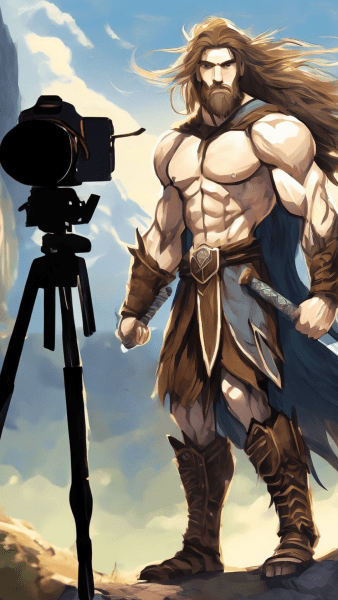
Some key points of Arnold’s rise as a movie star:
- 1982 – his breakthrough role in Conan the Barbarian. This epic fantasy story included sword fighting, horse riding, and plenty of opportunities for Arnold to showcase his physique. It brought him into the public’s attention as an actor.
- 1984 – his rise as The Terminator. Arnold’s portrayal of a cyborg assassin became a cultural phenomenon, cementing his status as a leading action star. He also reached his long-time goal of making $1 million for a film, a number that steadily rose to $10 million per film.
- 1988 – earning $35 million for “Twins,” a comedy film co-starring Danny DeVito. The producers of this movie weren’t sure if Arnold could be a successful comedy actor. So instead of a large upfront salary, Arnold negotiated a percentage of the film’s profits, a business move that paid off when it was a huge hit.
Let’s talk about a situation where Arnold’s self-confidence went a little far. While filming The Terminator, Arnold began arguing with the legendary director James Cameron that the line “I’ll be back” sounded too feminine, compared to “I will be back.” The director lost his temper, and Arnold was clearly mistaken, as that turned out to be one of the most iconic film lines of all time.
This reminds me of Steve Jobs, the charismatic co-founder of Apple. People around Jobs would say he had a “reality distortion field.” When other said a product like the iPhone was impossible, he would block out that part of reality and push his engineers to make it happen. While this approach often did make Apple create truly great products, it also took a toll on people around Steve Jobs. He was known as a big pain to work for because of his very high demands and standards.
Schwarzenegger’s career as a movie star was built on the rock of his unwavering confidence in himself. Because he didn’t need the money, he immediately aimed for the top, leading roles in big movies like Conan and Terminator.
👀 7. Focus on Your Flaws: Arnold became ultra successful by confronting his weaknesses head-on
Have you ever noticed that most people like to do what they’re already good at? Like a bodybuilder with huge biceps feels good just doing bicep curls in front of the mirror all day long. But that is a big trap. Because to win a bodybuilding competition your whole body needs to be developed. And to be successful in anything, we usually need to remove major weaknesses.
Arnold did the exact opposite of most people by deliberately focusing on his flaws. Being “brutal with yourself,” he advises, is the path to be successful.
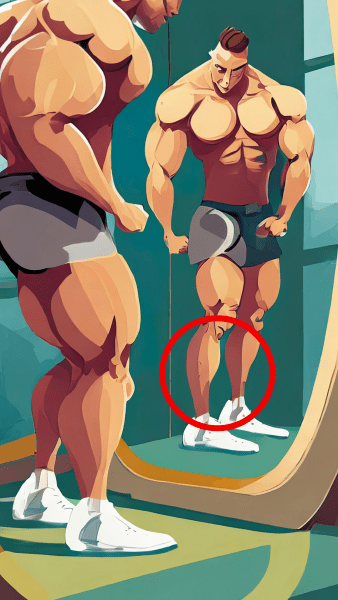
For example, one time Arnold realized his calves were his least impressive part of his body. So guess what he did? He cut all his sweatpants at the knee so that everyone else in the gym would always see them.
At the same time, he wore bigger shirts to cover up the most impressive parts of his body, his arms and chest. This motivated him like crazy to make his calves bigger. And that story really illustrates how he won Mr. Olympia seven times.
There are countless other examples in Total Recall:
- Arnold always asked the judges for brutally honest feedback, after every time he won a bodybuilding competition.
- He took four hours of daily acting lessons, as well as English classes, and voice lessons to tone down his accent.
- He pushed himself to do comedy movies, the exact opposite of what most people expect from a big action hero. Like the move Kindergarten Cop in 1990, where he plays a tough police detective that must go undercover as a kindergarten teacher to catch a criminal.
This philosophy mirrors the business strategy of Sam Walton, the founder of Walmart. Walton began with one small discount store in a small town in Arkansas, and grew it into the biggest retail company of all time. How? Through his unmatched determination to improve something every day.
Sam Walton would drive to every competitor’s store that he could, writing down ideas in his yellow notebook and asking their employees lots of questions. In his book, he wrote, “you can learn from everybody. I didn’t just learn from reading every retail publication I could get my hands on, I probably learned the most from studying what John Dunham was doing across the street.”
Arnold believes that to be very successful, it’s not just about working on what you’re already good at. We must confront our flaws and weaknesses head-on, even though it doesn’t feel good.
📢 8. Selling is the Secret: Making people aware of you and your work is absolutely essential
How did Arnold become such an international icon? It’s not just because he was a great bodybuilder or leading actor. After all, there are many impressive athletes and talented actors who fade away. Rather, his secret was promotion and sales.
Arnold defines selling as simply making people aware of your work. You can have the best movie in the world, but if nobody goes to see it, then it doesn’t make an impact.

In many creative circles, sales and marketing are looked down upon, but Arnold always saw himself “as a businessman first” and considered selling to be absolutely essential. In this book, he quotes the legendary television producer Ted Turner, who said “Early to bed, early to rise, work like hell, and advertise.”
From his early bodybuilding days, Arnold noticed how Reg Park captivated fans by engaging with them from the stage, not just flexing his muscles like a robot. So Arnold copied this approach, using his infectious enthusiasm and charisma to grow a loyal fanbase.
And even as a politician, Arnold knew he had to sell issues to the public, to make people care about them. For instance, he was passionate about the environment, but he knew that nobody wants to hear about living with less. Instead, Arnold sold the opportunity of a lucrative new green energy industry in California. And that is one reason there were over one million houses with solar panel roofs in that state.
Let’s return for a minute to Will Smith’s autobiography, where he shares the pivotal moment in his movie stardom career happened the first time he met Arnold. It was 1996, at a Planet Hollywood restaurant opening party, where he saw the three biggest action movie stars in the world having a conversation: Arnold Schwarzenegger, Sylvester Stallone, and Bruce Willis.
Will Smith, as a relatively new actor, had the audacity to approach these icons for advice. This led to a game-changing piece of wisdom from Arnold, who said: “You are not a movie star if your movies are only successful in America. […] You have to travel the globe, shake every hand, kiss every baby. Think of yourself as a politician running for Biggest Movie Star in the World.”
The next 10 years after that interaction, Will Smith actually did become the biggest movie star in the world. He credits that little piece of advice being his “secret weapon” and “holy grail.” Unlike most actors, he visited dozens of countries for each new movie launch. He discovered that making just a few appearances in a country could double ticket sales in that region.
Arnold believes it is not enough to be talented and make great work. You must also sell, that means making people aware of your work.
🤝 9. The Role of Relationships: A key foundation to Arnold’s success was getting to know the right people
Getting to know lots of people already successful at it—that was Arnold’s typical approach to entering any new field, from acting to business to politics. In the same way, we should be aware of how our life trajectory will be influenced by our surrounding friends, mentors, and network of connections.
One of the biggest examples is Franco Columbu—Arnold’s lifelong best friend, workout buddy, and early business partner. They met while training in Europe and, after Arnold arrived in America, he convinced his boss to extend a job offer to Franco as well. Clearly, the two men pushed each other to greater heights, as Franco was also one of the top bodybuilder in the world in his class.

Being around many politically influential people preceded Arnold’s run for Governor of California. When Arnold married his wife Maria Shriver, he became connected with the Kennedy family. Both of her parents were powerful figures in the Democrat party, and he got to see how their family worked very intimately during holiday visits.
Arnold himself was a lifelong Republican because he admires the entrepreneurial spirit of America. He travelled with George Bush Sr. on his Presidential campaign. He was also once told by President Richard Nixon that he should run for Governor, many years before Arnold actually did.
From 2003-2007, Arnold Schwarzenegger was the elected Governor of California, a state with an economy bigger than most nation’s economies. His big issues included protecting the environment, building infrastructure, and cutting government costs.
On that last point, there was a time he went too far, going to war with all 3 of the biggest public sector unions at one time. It was a move that strongly hurt Arnold’s approval ratings and caused him to reconsider, taking a different course for the rest of his time in office.
Let’s talk briefly about Arnold’s biggest scandal. The day after Arnold left politics, his wife took them to see a marriage counselor. She had discovered a big secret. 14 years ago, Arnold had found himself alone in the house with the housekeeper, and later she gave birth to his son. When Arnold found out, he helped support the boy financially, but never told his wife. This led to a divorce and is something he deeply regrets.
To sum it up, while individual effort is critical, the relationships we build will serves as the launchpad for our success, or our safety net if we stumble. In every area he wanted to master, Arnold first tried to speak to as many people as possible who were already successful.
- Write down tiny daily milestones towards your goals. For example, write down one challenging but achievable goal that you want to reach in 3 months. Break it down into 3 monthly milestones, then further into weekly and daily targets. These will encourage you to stay motivated just like teenage Arnold crossing finished exercises off the board, at the little gym in Austria.
- Practice with daily repetitions. Choose one skill you want to improve at, then commit to daily practice, using Arnold’s mantra that “everything is reps, reps, reps.” Find some measurable way you can track your improvement.
- Envision your future success. Write down one page about what your ideal life will look like in 5 years. It will be useful to find role models that are already living a similar life, like Arnold did with Reg Park.
- Trade 1 hour of content consumption for a growth activity. Most of us have more time available to us than we realize, but we spend it on attention rabbit holes like social media. Choose a hobby that makes you feel excited and passionate, and make that part of your daily routine instead.
- Cultivate 1 strategic relationship each week. Reach out to 10 people who can influence your growth and propose a specific way you can mutually benefit from connecting. Perhaps only 10% of these attempts will work, which results in 1 new connection each week.




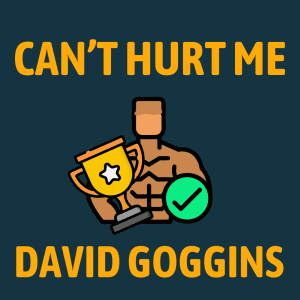

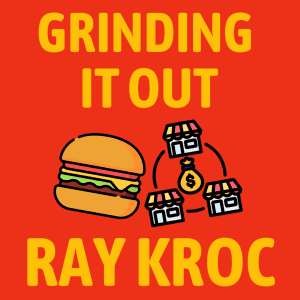



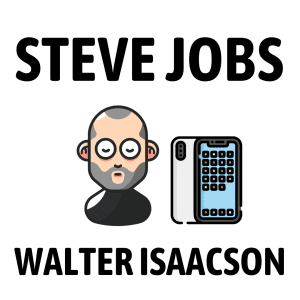


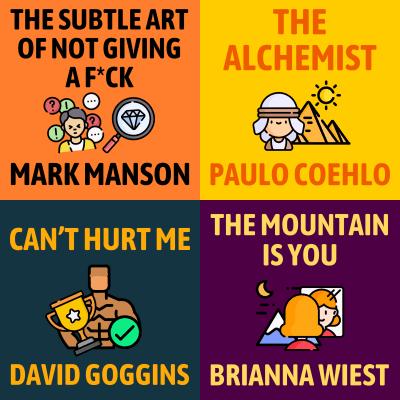


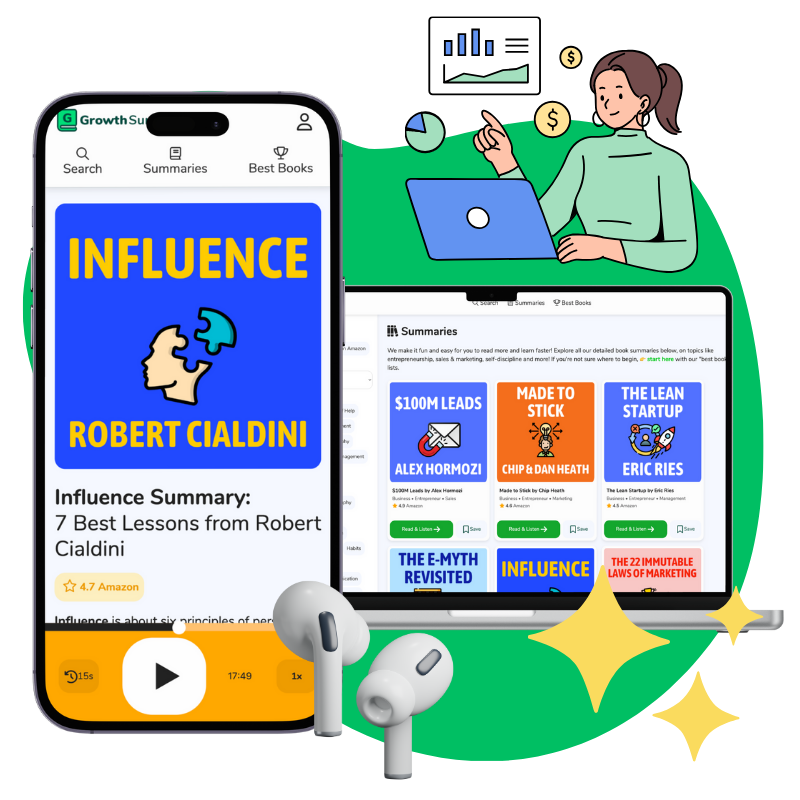
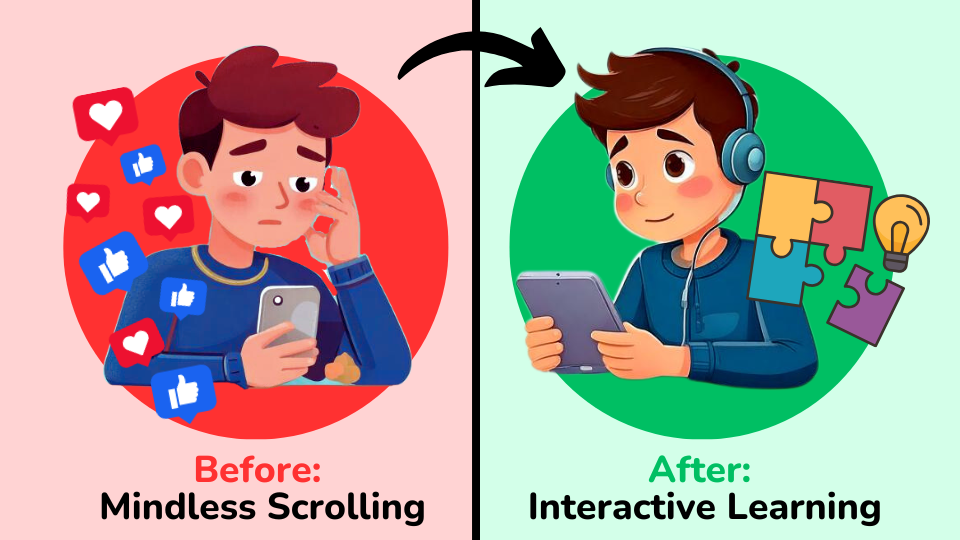








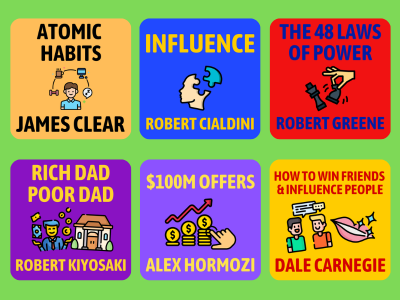
Community Notes